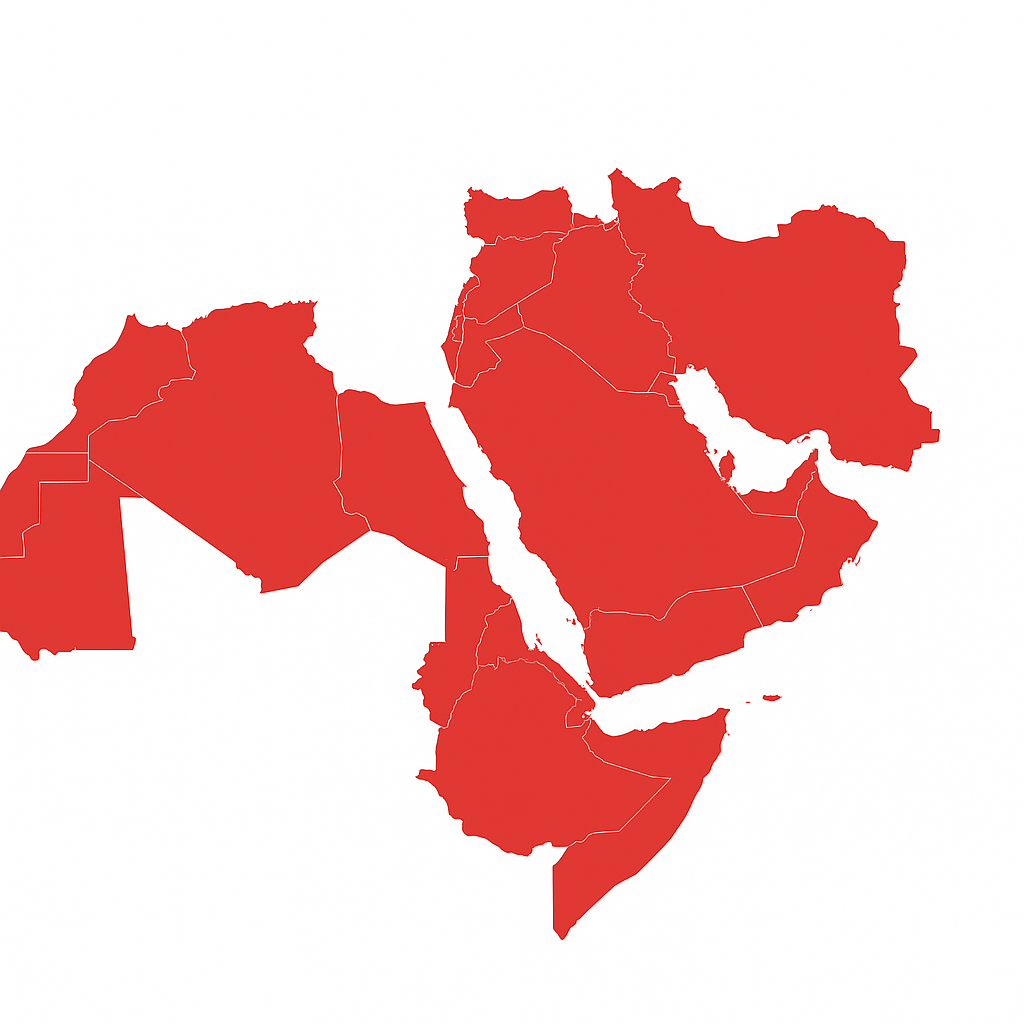Gulf Workforce Challenges and Manpower Solutions to Bridge the Gap
The Gulf region’s booming economies (e.g. UAE, Saudi Arabia, Qatar) rely heavily on a diverse, expatriate workforce. In countries like Qatar and the UAE, nearly 90% of residents are foreign-born, and sectors from construction to hospitality depend on these workers. At the same time, local citizens are often employed in the public sector, so private firms struggle to hire enough qualified nationals. This unique mix creates several challenges for Gulf businesses: specialized skills are in short supply new projects demand large teams, and strict nationalization quotas (Saudization, Emiratization, etc.) force companies to hire more locals. High turnover among expatriates compounds the problem; many expat workers view Gulf jobs as temporary, leading to frequent job changes and extra recruiting costs. Altogether, these factors can delay critical projects and drive up labor costs if not managed properly.
Common Workforce Challenges in the Gulf:
- Skilled labor shortages: Rapid growth in technology, construction, and healthcare sectors has outpaced the number of available skilled locals. For example, forecasts show a global talent shortfall of ~85 million unfilled jobs by 2030 (worth trillions of unrealized revenue), and GCC countries feel this pinch acutely. In Saudi Arabia alone, Vision 2030 will require roughly 920,000 new jobs by 2030, far beyond the current national workforce.
- Project-based staffing needs: Massive infrastructure and event-driven projects (e.g. Saudi’s $500+ billion NEOM city, Dubai Expo 2020 legacy projects, Qatar’s World Cup venues) create urgent spikes in labor demand. For instance, “Expo 2020’s legacy…demand for skilled manpower continues to rise” as businesses launch new ventures. Filling thousands of roles on tight schedules is a constant struggle.
- High turnover and mobility: Much of the Gulf workforce is mobile. Expatriates often move for better pay or leave at contract end, causing frequent vacancies. One HR report notes that expat employees view their positions as temporary, leading to “frequent job changes” that disrupt operations and increase hiring costs. Employers must continually recruit and train replacements, which hampers continuity.
- Nationalization policies: Governments have introduced aggressive localization programs to boost citizen employment. Programs like Saudi Arabia’s Nitaqat, Bahrainization, and Kuwaitization set mandatory quotas and incentives for hiring nationals. For example, Saudi firms must meet sector-specific Saudization targets or face penalties. While well-intentioned, these rules strain companies when qualified local candidates are scarce. Many local graduates lack the specific skills needed, so forcing national hires can impact efficiency.
Skilled Labor and Skills Gaps
The mismatch between workforce skills and industry needs is a core issue. Even globally, advanced fields like AI, cybersecurity, and engineering face huge talent gaps. In the Gulf, this is magnified by rapid change: construction, energy, and tech industries need hands-on skills that local education programs haven’t fully provided. For example, Saudi Vision 2030’s knowledge-economy goals necessitate extensive upskilling of youth and career retraining programs. In practice, private firms often must recruit from abroad to fill technical roles.
Project and Seasonal Staffing Demands
Gulf economies continuously roll out mega-projects (new cities, transit systems, tourist hubs) and host global events. These surges require rapid, large-scale staffing. For instance, the $500B NEOM city in Saudi Arabia and Expo City in Dubai drive persistent demand for welders, engineers, and heavy-equipment operators. Likewise, Expo 2020’s continuation into District 2020 and Qatar 2022 infrastructure mean companies must hire thousands of workers on tight timelines. A Dubai industry source notes that with new projects in full swing, “demand for skilled manpower continues to rise”. In such an environment, prolonged hiring delays can stall construction schedules and inflate project costs.
High Turnover in the Expatriate Workforce
Many Gulf private-sector workers are on fixed-term contracts or migrant visas, so employee turnover is high. Turnover is especially pronounced in hospitality and retail – sectors that recruit huge numbers of workers each season. This churn forces employers into a continuous hiring cycle. According to a regional HR analysis, expatriate employees often view Gulf positions as temporary, leading to “frequent job changes” that disrupt organizational stability. In practical terms, this means Gulf businesses frequently lose trained staff and must replace them, incurring repeated recruitment and training expenses.
Navigating Nationalization Policies
Gulf governments are emphasizing citizen employment in the private sector. Initiatives like Saudi Arabia’s Nitaqat system and similar programs in the UAE, Oman, Kuwait, and Bahrain set employment quotas for nationals. For example, Saudi companies may get government incentives or preferential treatment if they meet Saudization targets, while others face fines or levies. To comply, businesses must hire or train local workers for roles often filled by expats. However, replacing expatriate staff isn’t always straightforward: many nationals prefer public-sector jobs with higher pay and security. There is often a skills mismatch too, since vocational and STEM education in the region is still aligning with private-sector demand. In short, nationalization policies add pressure on firms to find or develop qualified locals while keeping projects on track.
How Professional Manpower Solutions Help
Professional recruitment and staffing agencies specialize in overcoming exactly these hurdles. By partnering with a manpower provider, Gulf businesses gain:
- Access to deep talent pools: Top staffing firms maintain large databases and global networks across key source countries. They tap both active job-seekers and passive candidates (those not openly looking), greatly widening the candidate pool. For example, many Gulf blue-collar roles are filled by skilled workers from South Asia or Eastern Europe. Experienced recruiters in those markets can rapidly match qualified personnel to Gulf projects.
- Rapid time-to-hire: Instead of spending weeks on hiring, companies get pre-vetted talent fast. Agencies use advanced sourcing tools and screening processes. As one HR analysis notes, “every day a position stays vacant, businesses lose productivity,” so efficient recruiters use AI shortlisting and networks to slash vacancy time. This ensures critical roles are staffed before project deadlines slip.
- Compliance and localization support: Staffing firms know local labor regulations and nationalization laws. They can help identify candidates who meet localization quotas (e.g. Emirati or Saudi nationals when required) and guide employers on Emiratization/Saudization rules. By handling visa paperwork, work permits and localization paperwork, they ensure companies stay compliant with UAE/Saudi rules without building in-house expertise.
- Cost efficiency: Outsourcing recruitment often saves money. Employers avoid costs of advertising, screening, and background checks. Experienced agencies handle these processes at scale. One hiring firm explains that by reducing bad hires and automating payroll/visa work, staffing partners actually cut overall hiring expenses. Over time, this leads to better ROI than running solely internal HR.
- Training and readiness: Many agencies provide basic training or orientation so new hires are job-ready. For example, recruiters often deliver candidates who have already completed safety certifications or technical training for Gulf roles. This “pre-trained” workforce means shorter onboarding and faster productivity. Clients report that good agencies “match the right people to jobs” and provide reliable hires.
- Flexibility and scalability: Manpower solutions let businesses scale staffing up or down with minimal risk. Need 200 workers for a construction phase? A staffing partner can mobilize a crew quickly. When a project winds down, companies can release contract labor without the overhead of permanent layoffs. This agility is crucial given the ebb and flow of Gulf projects.
By leveraging these advantages, Gulf companies can address their workforce shortfalls more effectively than going it alone. Rather than battling high turnover or falling behind on hiring, firms using professional manpower solutions stay staffed and compliant. For instance, a Dubai retail chain filled 150 new outlet positions in under four weeks through an agency, cutting hiring costs by 30% and improving retention with better candidate matches.
Overall, professional manpower agencies act as workforce partners: they connect Gulf businesses to global talent, manage local HR complexity, and even support upskilling initiatives. This complements government efforts (like Saudi tech training programs and UAE incubators) by quickly translating those trained talents into private-sector jobs. In the competitive Gulf market, having an expert staffing ally can mean the difference between project delays and on-time delivery.
Conclusion & Call to Action
Gulf companies face a unique set of labor challenges – from skilled labor gaps and megaproject demands to turnover and national quotas. Professional manpower solutions are a proven way to overcome these hurdles. Whether it’s sourcing niche technical talent, providing contract crews for new projects, or ensuring compliance with Saudization/Emiratization rules, a staffing partner delivers customized support.
If your business needs reliable staffing in the UAE, Saudi Arabia, Qatar or beyond, contact HCM Global Group. Our experts understand Gulf workforce dynamics and maintain extensive networks to supply the right candidates swiftly. Let HCM Global Group help you stay fully staffed and competitive – reach out today to discuss your manpower requirements.
Sources: Reports and industry analyses on GCC labor markets and recruitment practicesbakerinstitute.orgbakerinstitute.orgpro-capita.comditrc.comditrc.comstallion-intl.comstallion-intl.comstallion-intl.comstallion-intl.combakerinstitute.orgbakerinstitute.orgkas.deweforum.org.





